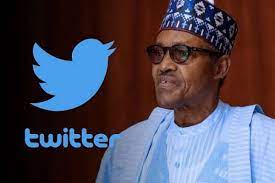There are no products in your shopping cart.
| 0 Items | £0.00 |


NIGERIAN businesses have lost a total of about N150.46bn ($366.88m) since June 5 as a result of the federal government's ban on Twitter in response to the company deleting a tweet posted by President Muhammadu Buhari.
In June the Nigerian government banned the use of Twitter across the country. This ban has attracted widespread condemnation and in response, the Socio Economic Rights and Accountability Project (Serap) and 176 concerned Nigerians took the government to the Ecowas court.
According to figures just released, Nigerian businesses may have lost N150.46bn ($366.88m) since June 5. This figure was calculated based on the NetBlocks cost of shutdown tool, which values Nigeria’s loss to the Twitter ban at N102.77m ($250,600) every hour.
A NetBlocks spokesman said: "It has been 1,464 hours (61 days) since the ban. In that time period, Nigeria may have lost N150.46bn."
NetBlocks' cost of shutdown tool estimates the economic impact of an internet disruption, mobile data blackout or app restriction in a nation using indicators from the World Bank, International Telecommunication Union, Eurostat and US Census. Nigeria's federal government had cited the persistent use of Twitter for activities capable of undermining the country's corporate existence as the reason for the suspension.
When sued over the ban, the federal government told a federal high court in Lagos that it had not stopped Nigerians from using Twitter, pointing out that many Nigerians still used the platform every day. According to a report by Statista, Nigeria has about 33m active social media users, with about 26% on Twitter.
Since the ban, some Nigerians have migrated to the use of Virtual Private Networks (VPN). ExpressVPN said in June that it recorded an increase of over 200% in web traffic from Nigeria since the federal government banned Twitter.
VPN works by changing the location of devices they run on. However, small and medium-sized enterprises which use this platform have said this has not been good for their businesses.
Financial planner, Kalu Aja said: “Social media enables the brand to talk directly to consumers, it’s direct marketing, specific and targeted. There is no organisation on earth, profit or not-for-profit, without some form of advocacy via social media.
“The Twitter ban raises a narrative about doing business in Nigeria and it’s not a good narrative. Specifically, Twitter and social media allow small and medium-scale enterprises and sole proprietors with zero marketing budgets but a smartphone to build and communicate a brand promise.”
Olanregun Ayodele who sells women’s and men’s clothing on Twitter, added:“Twitter was very important to my business. I got a lot of customers from Twitter."
Babatunde Motunrayo, who sells female accessories on Twitter said: “Twitter was very helpful as I got 75% sales here, compared with other apps I sell on. I use Instagram too but make more sales from Twitter.
“It’s not been the same since the ban as sales have been poor. Having to turn on and off your VPN most times makes you reply to clients late and before you know it, you’ve lost the client because some say they’ve got it from another vendor."